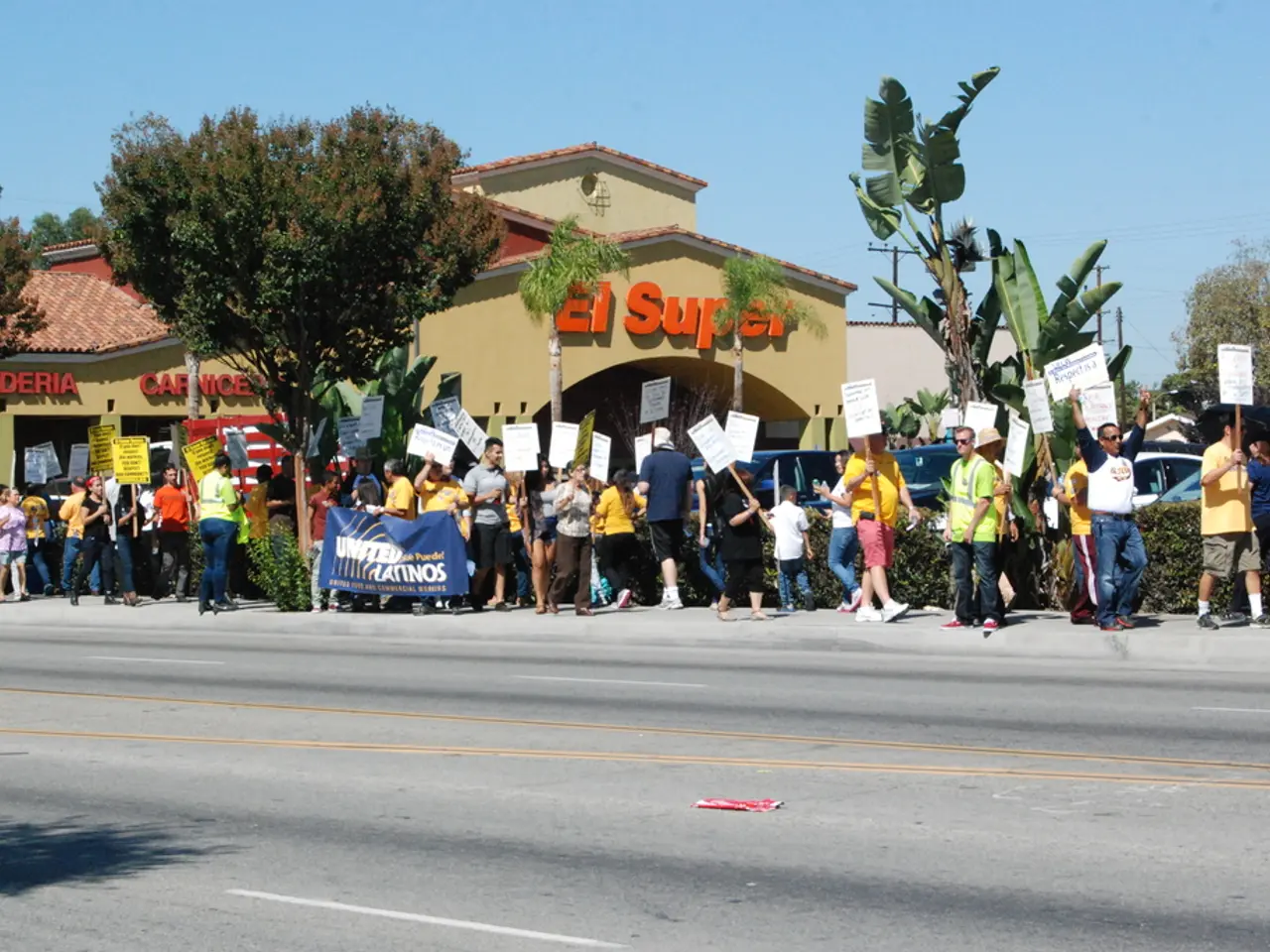Far-right party, AfD, experiences significant vote increase in Thuringia elections
In the heart of Germany, a runoff election is set to take place in Thuringia, a federal state known for its cities Erfurt and Jena. The election, a crucial part of the democratic process, is necessary as no candidate managed to secure a majority in the initial vote.
Thuringia, located slightly to the east of the country, follows the democratic principle where citizens freely vote for who should govern. The winning party must respect the rights of the minority, even those parties with fewer votes, ensuring their participation in decision-making.
The AfD party, a political force that entered the Bundestag in 2017, has seen a significant rise in votes compared to five years ago. However, the Constitutional Protection Agency, based in Cologne, has classified the AfD as far-right due to their stance on issues such as refugees and Islam.
In the runoff election, Björn Höcke, the AfD candidate, will be contesting. The AfD's rise in popularity has been a topic of discussion, but the party's behaviour, including its xenophobic stance on refugees and Islam, has been met with criticism from many politicians who refuse to work with them.
The Constitutional Protection Agency, responsible for ensuring security in Germany by monitoring individuals who are against freedom and democracy, has kept a close eye on the AfD. The term 'far-right' refers to groups that advocate for unequal rights for all people, sometimes believing that certain groups are superior to others.
Meanwhile, the rural districts of Germany, composed of several cities and villages combined, have also seen voting for parties to govern. The results of these elections are yet to be announced, adding an extra layer of intrigue to the Thuringia runoff election.
It's important to note that a runoff election occurs when more than two candidates are running for an office, and there is an extra election between the two candidates with the most votes. In this case, the runoff election in Thuringia is also known as the second round.
The runoff election promises to be a significant event in Thuringia's political landscape. As the nation waits for the outcome, the focus remains on the democratic process and the role of parties in shaping the country's future.
Read also:
- United States tariffs pose a threat to India, necessitating the recruitment of adept negotiators or strategists, similar to those who had influenced Trump's decisions.
- Weekly happenings in the German Federal Parliament (Bundestag)
- Southwest region's most popular posts, accompanied by an inquiry:
- Discussion between Putin and Trump in Alaska could potentially overshadow Ukraine's concerns








